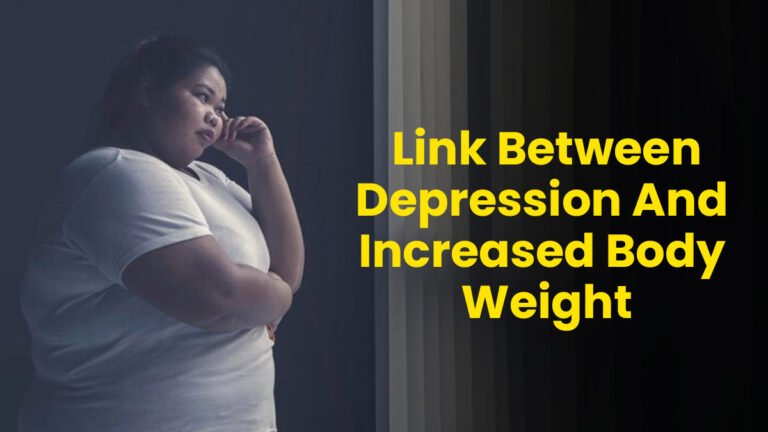Our mental and physical health are deeply connected and intricately intertwined. One example of this connection is the relationship between depression and weight. Many people who suffer from depression often experience changes in their weight. Similarly, people who suffer from obesity are more likely to suffer from depression. To understand this mechanism, we Archana Singhal, Founder, Mindwell Counsel, Counsellor and Family Therapist, Delhi It helped me understand why depression leads to weight gain and how to deal with it effectively.
Depression, characterized by low mood, loss of interest and pleasure in life, and disturbances in sleep and appetite, affects more than 300 million people worldwide, according to a 2023 study. Global prevalence is 7% in women and 4% in men.
Understanding the connections
According to BMC Psychiatry, obesity and depression are interconnected and both are recognised risk factors for cardiovascular disease and diabetes. They are also linked to negative health and lifestyle factors such as disrupted sleep patterns, sedentary behaviour and dysregulated appetite and food intake.
A 2010 meta-analysis found that obese men and women have a 55% higher risk of developing depression, and depressed people have a 58% higher risk of becoming obese.
Emotional eating
“Depression often triggers emotional eating, where people use food to cope with their emotions. This can lead to overeating, especially high-calorie, high-sugar and high-fat foods, which can lead to weight gain,” Singhal said.
A 2023 study found that stress and negative moods can have an inverse effect on appetite, causing some people to eat more and others to eat less. Emotional overeating and emotional undereating are behaviors that have been linked to the development of eating disorders and weight problems.
Also read: Mental health matters: Experts list what you should know before getting screened for depression
Decreased physical activity
People with depression often experience feelings of fatigue and lack of motivation, making it difficult for them to maintain regular exercise. These sedentary lifestyle habits can lead to weight gain over time.
Metabolic changes
Depression can change the body’s metabolism. People with depression often have elevated levels of the stress hormone cortisol, which can lead to increased fat storage, especially in the abdominal area.
Medication side effects
Antidepressants and other psychiatric medications can cause weight gain as a side effect, which can be stressful for patients and create a vicious cycle of depression and weight gain.
A 2018 study found that antidepressants increase the risk of weight gain, but the extent of this increase varies by type of antidepressant. People taking antidepressants in the second year had a 46.3% higher risk of gaining at least 5% more weight than non-users. These results were consistent across a variety of demographics.
Sleeping disorder
“Depression is often associated with sleep disorders, including insomnia and oversleeping. Lack of sleep disrupts the functioning of hormones that regulate hunger, leading to increased appetite and weight gain,” Singhal added.
Also read: Menopause and depression: Expert explains the relationship, causes and how to manage them
Addressing the issue
Here are some tips shared by experts that can help you manage this issue effectively.
- Therapeutic Interventions: Cognitive behavioral therapy (CBT) and other treatments can help individuals manage depression and develop healthier coping mechanisms rather than turning to food.
- Lifestyle Changes: Encouraging regular exercise, even in small amounts, can improve mood and help prevent weight gain. Activities such as walking, yoga and dancing can be beneficial.
- Nutritional advice: Working with a dietitian can help you make healthier food choices. A balanced diet rich in fruits, vegetables, lean proteins, and whole grains supports good mental and physical health.
- Medication Administration: Regular consultation with your healthcare professional is essential to monitor the effects of your medication and make any necessary adjustments. In some cases, switching medications may help alleviate weight gain issues.
- Support System: Building a strong support network that includes friends, family, and support groups can provide emotional support and encouragement, making it easier to manage both depression and weight.
Conclusion
Singhal concludes: “Understanding the link between depression and weight gain is crucial to effectively addressing both issues. By recognising the signs and implementing a comprehensive approach that includes treatment, lifestyle changes and support, individuals can break the vicious cycle of depression and weight gain. Taking proactive steps to address these inter-related issues will lead to a better quality of life and improved health outcomes.”
[Disclaimer: This article contains information provided by an expert and is for informational purposes only. Hence, we advise you to consult your own professional if you are dealing with any mental health issues to get the necessary treatment.]


